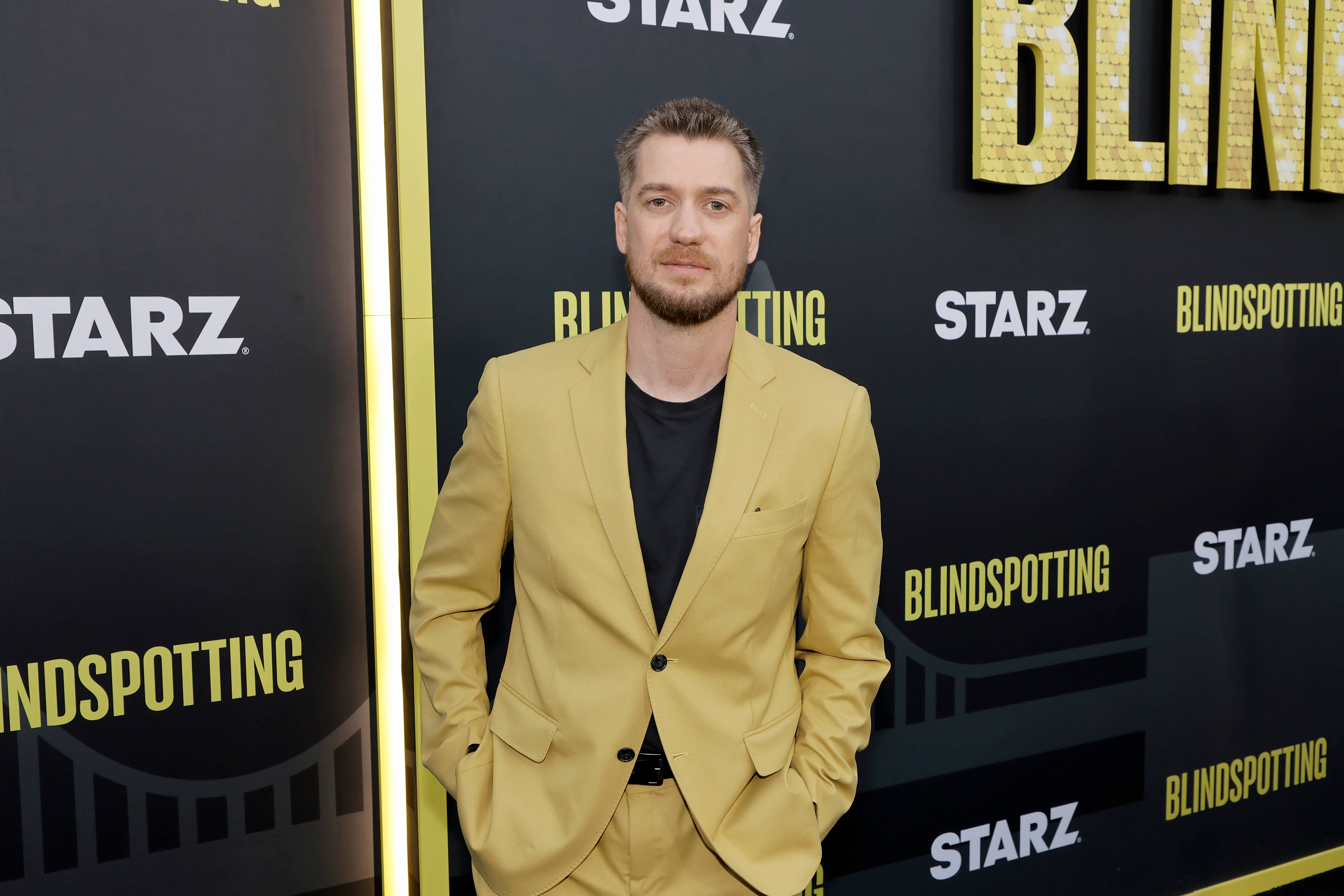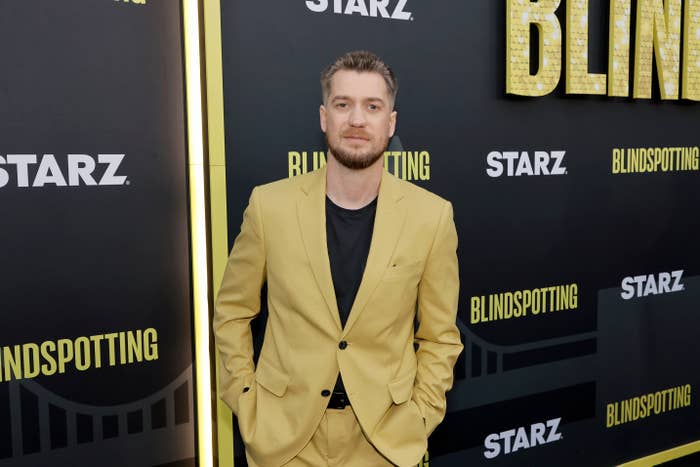
Making a strong first season of a TV series is one thing, but being able to come back stronger with Season 2 is a feat. Rafael Casal and co-creator Daveed Diggs have done just that with Blindspotting’s second season.
The Starz series was inspired by their 2018 film of the same name and follows the story of Miles (Casal) and Ashley (Jasmine Cephas Jones), a young couple raising their son Sean (Atticus Woodward) in the Bay Area. Season 1 kicked off with Miles being arrested, shifting the focus away from Miles and his friend Collin (Diggs) in the film to now centering the story on how Ashley and Miles’ family deal with life together while he is behind bars.
Miles and Ashley got married in Season 1, and now as they are closing in on a year of being apart, we see how being forced into single motherhood has affected her. Episode 1, “Planes, Trains, and Automobiles,” directed by Casal, is brilliant. Ashley is throwing a birthday party for her son and anyone who has attended a child’s birthday party knows how hectic and overwhelming they can be—especially without a second parent to share the responsibilities with. Miles’ mom Rainey (Helen Hunt) and his little sister Trish (Jaylen Barron), as well as other family friends, have rallied around Ashley and Sean to help make the separation easier. Still, Ashley is more stressed out and short-tempered than we remember her from Season 1.
While Ashley and Miles’ relationship is still the heart of the story, Blindspotting Season 2 continues to heavily shed light on the realities of the prison industrial complex (even going as far as filming Episode 3 at San Quentin State Prison in California). It also focuses on how incarceration not only affects the imprisoned but also those who love them—and Season 2 shows how the effects linger even after they have served their time. They explore that through Earl, a neighbor and family friend who was forced to go back to prison after a work mishap caused him to miss his probation curfew.
Blindspotting is a comedy, with fantasy elements that also feel like they were crafted to take place on a theater stage. While they cover a range of incredibly serious conversations, deep emotional trauma, and the dark realities of life, it is all made easy to process through the incredible performance of each actor.
“The fun of Season 2 is now that we knew the cast better and knew what their strengths were, we could write for them. We also had a writers room that could write better for them and make sure that they were in scenes where they could improvise in the way that would be most entertaining,” Casal tells Complex. “[Season 2] is nothing but laughs. We’re cracking up all the time. And then every once in a while, it just hits you like, ‘Oh, right, this is a show about prison.’ But we try to let you forget that as much as possible, so you’re just falling in love with these people and you just want to hang out with them.”
Complex caught up with Casal ahead of Season 2, and he talked about directing a majority of the season, showing viewers more of Miles and making sure the essence and true message of the show wasn’t lost while making it even funnier and whimsical the second time around.
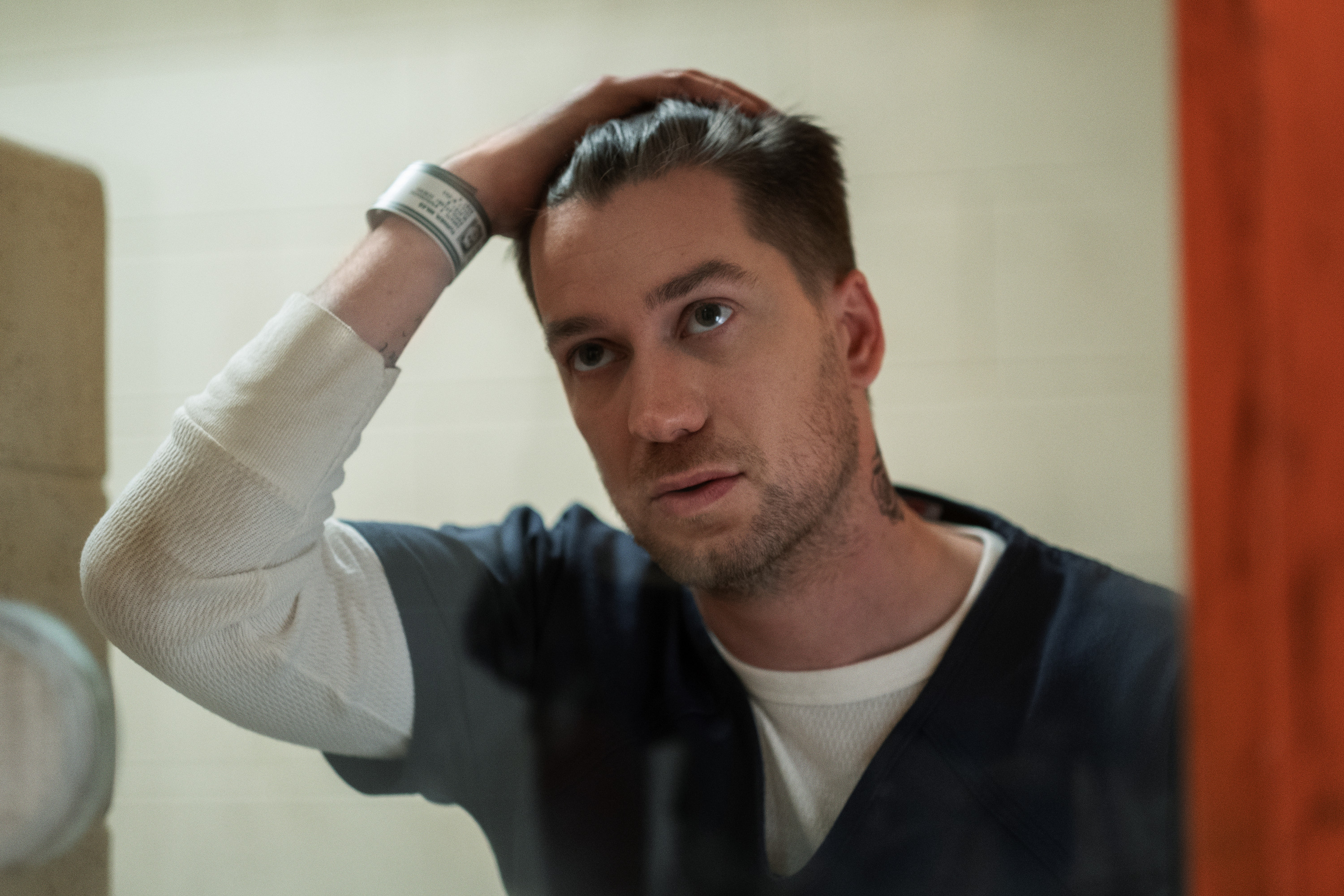
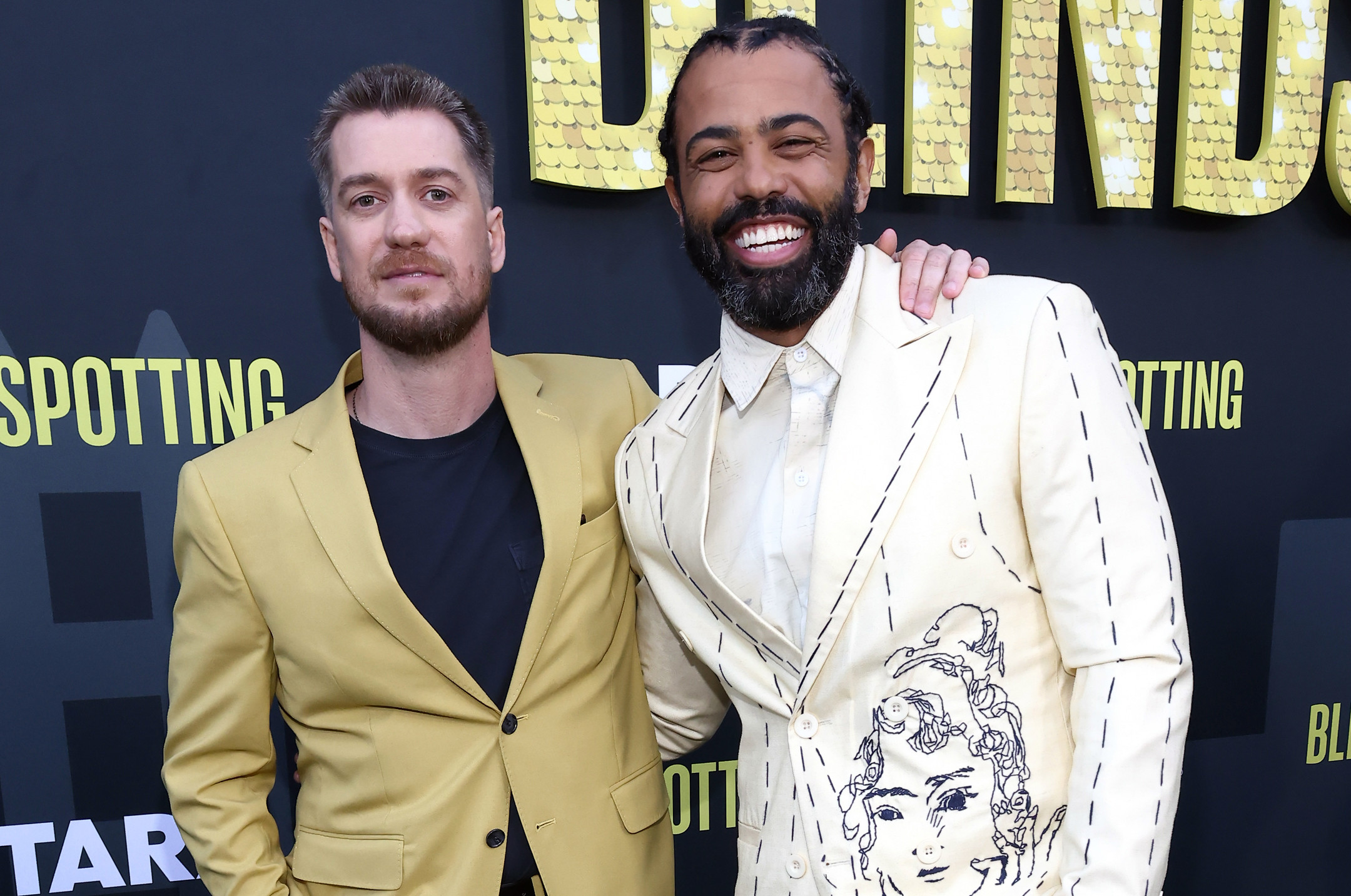
I thought, “I could see this on a theater stage.” We see a lot of plays that turn into movies or TV shows, but this feels like a TV show that could turn into a play.
Yeah, you’re totally right. There’s definitely a play about the 48 hours of visitation and what that is like for a family. And we shot it like that. We had just four days together in that little room, that little apartment. We built the inside on our set, and then we went to San Quentin [State Prison] to shoot all the outside stuff to make sure that it felt real. So when I step outside and do that look-up, that’s the real tower. That’s real. We’re deep in that prison. People are on the yard 20 feet away. It brought it home. Some of the stuff that’s coming out of us is because we’re really in that space with other people. We got in that room, because somebody who was actually doing that visitation had just finished their stay with their family.
I’ve never seen anything like that represented on TV. I didn’t know that you could even do that: You can spend 48 hours with your family.
There’s only seven prisons in the country that allow that. San Quentin’s one of them. So in the Bay, we have one of the prisons that has very progressive programs. To your point, I was like, “I don’t think people even know that this is an option.”
Miles’ mom Rainey is also dealing with her own health issues. The show doesn’t really talk about that openly, but it’s a looming cloud that’s so subtle. Can you talk about the journey that Rainey’s going through in terms of her health?
It’s right there underneath. We’ve tried to be really strategic about not having to be way up-front, because as Helen [Hunt] says a lot, you put any woman on a show over 50 and you’ve got to give them dementia or you’ve got to give them some condition that becomes the entire identity of the character. So she was really adamant, and I think we were all kind of onboard with this being a thing because it’s a real thing, and it’s a real thing that some of our parents, our family members, are going through. But it can’t be her defining factor. So you forget until something, some little thing, happens. When a parent or an aunt or somebody, a grandparent, is going through that, you do kind of forget. And then there are these moments where it hits you in the face, and you’re reminded that time is short.
Right.
So we’ll go a couple episodes and not bring it up, not have anything happen. Then it’ll just be one little [thing]. She does this thing where she’ll just kind of get lightheaded and then she’ll be like, “No, no. I’m fine. I’m fine.” And moving on. Because also, with women who raise entire families and multiple generations and families, that’s one of the defining characteristics of their lives.
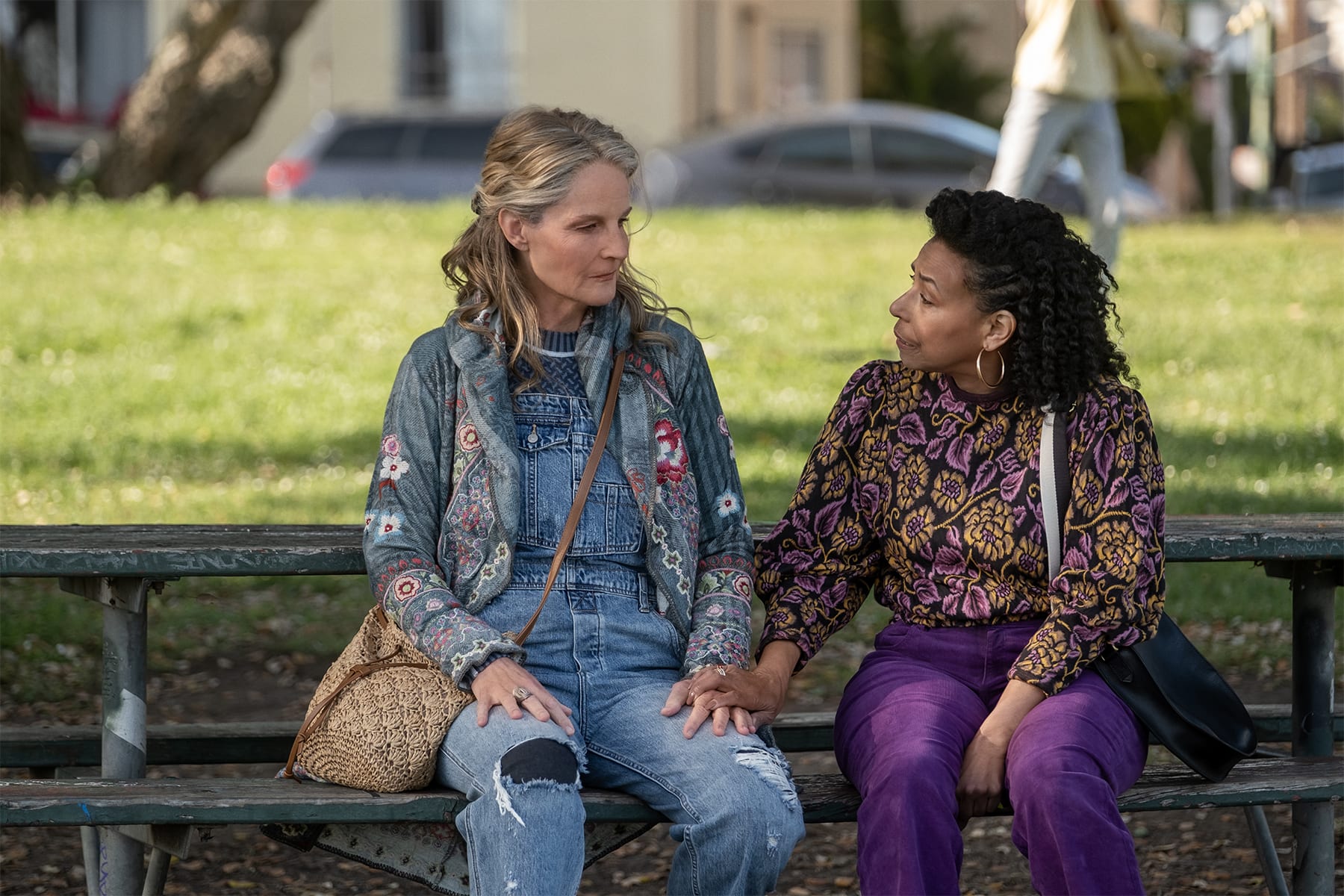
So this idea of not being able to have autonomy. My mother is like this. My mother walks every day. She bikes everywhere. She’s got a whole social life. And she’s very aware that she’s getting older, but also, she has a way in which she uses herself and the way she needs to function in the world, and nobody’s taking that from her. Nothing on the outside and nothing on the inside is taking that away. So that’s what I love about Rainey. Rainey’s just like, “I don’t care what’s going on. I’m trying to see my kid. I’m trying to be here for my family. I’m trying to have my social life. I’m trying to live a life of purpose and live a life of support.”
She’s just championing Ashley. The patience that she has for this daughter-in-law. And you’re expecting her to be like, “Listen, little girl.” [Laughs.] And instead she’s doing this thing where she’s like, “I’d like to give you a thought.” Which is like, the patience that it takes to speak that way to somebody. But she knows the balance in the house has to stay cool. If they start fighting, it’s over. There’s so much wisdom in that.


